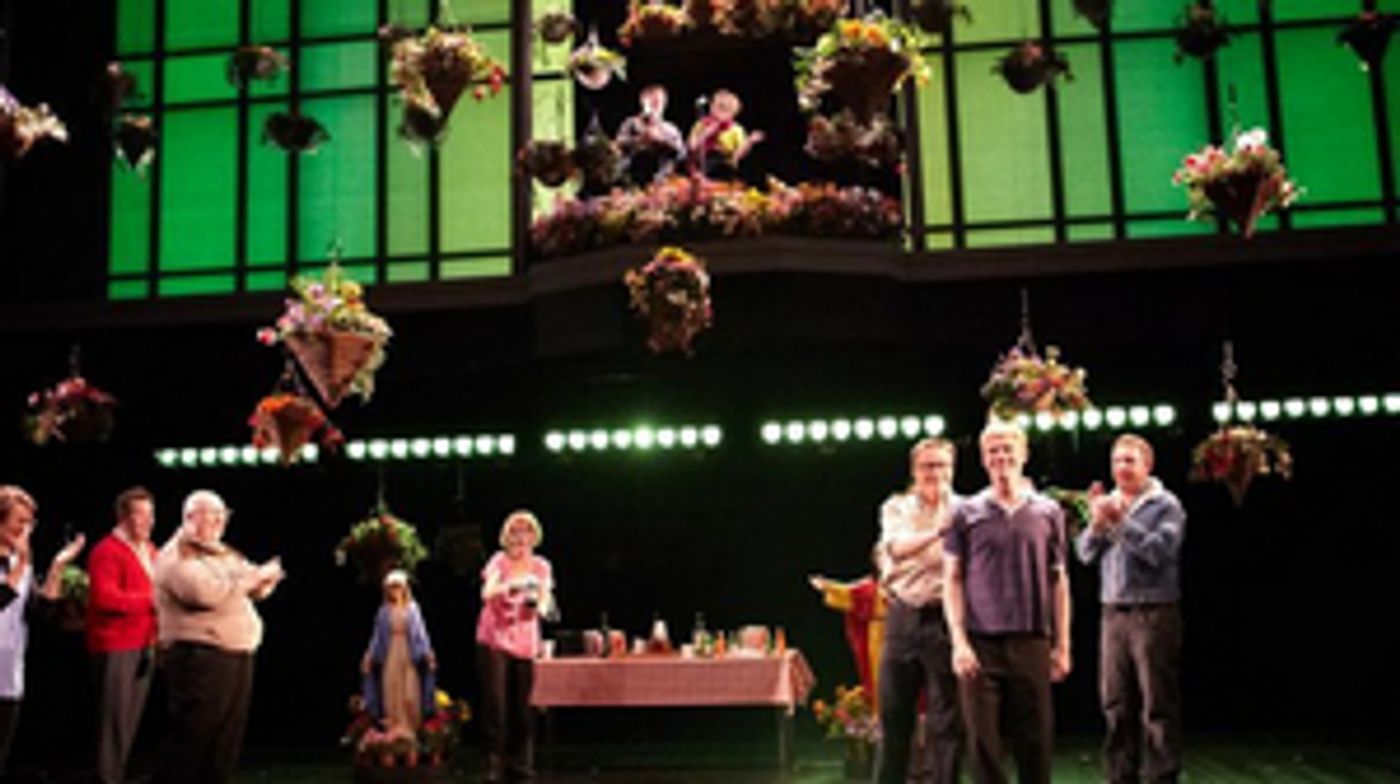The Shows That Made Us: LONDON ROAD
Looking back to Alecky Blythe's groundbreaking verbatim play at the National Theatre

In our new series, we're asking BroadwayWorld reviewers which show had the most impact on them...
Why were the actors speaking so hesitantly, sometimes too mumbly, sometimes too assertive?
Who is the protagonist, the star, the hero?
What was this weird music all about?
In 2011, London Road at The National Theatre scooped me up and placed me in two familiar, yet oh so strange worlds.
I was in a suburban street in Ipswich, neighbours concerning themselves with the warp and weft of 21st-century life, particularly how to take pride in the kind of "left-behind" place that is now something of an obsession for political parties. Then a murderer comes amongst them, targeting the sex workers with whom the locals had forged an uneasy peace.
Everything changes.
There's fear, of course, but there's equivocation too - the community take a guilty (very guilty) pleasure in seeing the streets free from the women who worked them and the men who paid them. Some resent the police presence, feeling that their lives are being circumscribed for events that might be happening in the same geographic space, but not at all the same social space. And, with a ruthless serial killer targeting the women, why are they even working? They know the risk and they're accepting it, so...
Looking back from the vantage point of 2020, one sees so much of the political landscape of the past five years in the UK (and, especially, the USA) in the culture wars that were an implicit theme of the play. Locals had made space for the sex workers and just about tolerated them, but this was a step too far - their way of life had brought a killer into the heart of a community of decent people and its was their problem to solve.
So far, so David Hare.
But the real jolt into the world of theatrical possibility lay not in Alecky Blythe's "State of the Nation" subtext, it was in her construction of the narrative. Blythe did not "write" this show so much as assemble it from many hours of recording the locals' thoughts on the events of late 2006. Actors then spoke the lines - verbatim and with the hesitancies, false starts and repetitions that characterise normal speech by normal people. So the hyperreal inhabited the surreal.
Blythe's genius (not too strong a word) was to create a language that captured the indescribable from people left inarticulate by the catastrophe in which they were caught. As I said in my review, I had seen something similar in Gordon Burn's Happy Like Murderers, in which his flat prose and loop backs suggested the essential banality of the lives of Fred and Rosemary West. In the theatre, this discourse was disorienting, thrilling and devastatingly effective.
This new theatricality was supported by Adam Cork's music that sometimes sat in the background, but often slid forward so that the actors half-sang and half-spoke their half-finished sentences. It also added an otherworldly soundtrack to life on the street, pushing us towards acknowledging the contrast of the bustle of daylight hours with the eerie otherness of the dank foggy nights in which ghosts of dead women floated towards us - their song, like that of the sirens, calling more to the afterlife at the hands of their evil deliverer.
London Road was an exercise in the possibilities of theatre, a poking and prodding at convention that hit its target unerringly. Perhaps it was inevitable that the cinema version fell flat, the innovations merely tricks, the distance, so expertly, terrifyingly, dissolved on stage, chasmic on screen.
I haven't seen the production since that press night in 2011 (though it did return, by public demand, to the NT a year or so later) and I'm not sure that I should. At its life-affirming conclusion, I was on my feet, tears welling in my eyes (a very rare occurrence) and people all around me were congratulating Alecky, who happened to be one row behind. Like me, many just nodded or shook her hand - we had been rendered wordless by the words that she had been given, transformed, and then presented to us.
"Theatrical Magic" is an overused phrase - every other pantomime conjures it apparently - but London Road really was theatrical magic. Over 1,000 shows later, I've never seen anything quite like it - and I doubt that I ever will.
Which show made you? Let us know on Twitter, Facebook or Instagram!
Videos


